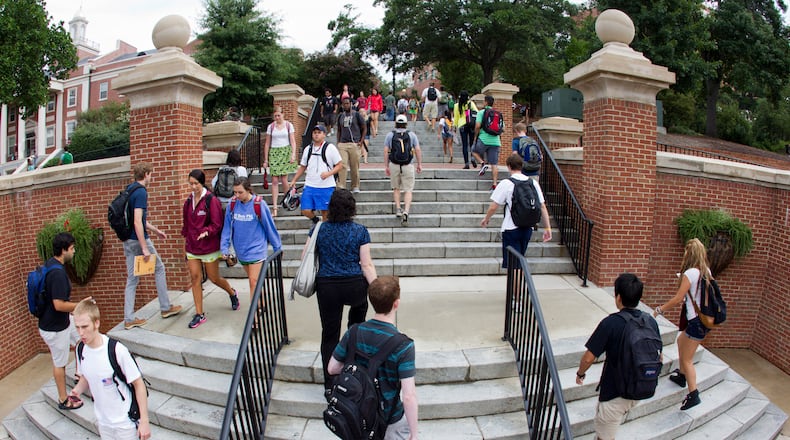Faith Settipani is a senior at the University of Georgia. In a guest column, Settipani targets peers who claim to support social justice causes, but fail to demonstrate socially responsible actions in the face of the COVID-19 pandemic.
By Faith Settipani
Nothing has an effect quite like a global pandemic. While the world is focused on its dying citizens, the health effects of this virus without a cure, and the further dissipation of the lower and middle classes at its forefront, frat parties and haircuts are the main concern for those around me.
And I’m pissed.
As an immunocompromised person, I've been advised to adhere to safety guidelines such as self-quarantining and leaving my house as little as possible. I have no issue with this and have been fortunate enough to be able to do this since March with few hiccups.
My main concern, though, relates to the elevation in my blood pressure when I scroll through Instagram and see hundreds of college students ignoring these guidelines that are so clearly set out. While the news is focusing on the middle-aged protesters who line the streets with signs advocating for their right to get a haircut, there’s little attention on the college kids who couldn’t care less if grandma dies in the name of a shot-gunned Bud Light.
For these kids, death seems so far away that the idea it could be so close to someone else their age seems unbelievable. So, they choose to not believe it.
While there’s often an assumption that the upcoming generation has more empathy and concern for others, human nature has a sneaky way of creeping up on us in its most subtle and vicious forms. The compassion and commitment of my peers often seem to bend to convenience.
Though a lot of my classmates are thrilled to use specific pronouns for a trans individual or honored to continuously spam their Instagram accounts with quotes from Audre Lorde and other black heroes in support of Black Lives Matter, there is a disconnect to this performative activism when tapped with the slightest inconvenience.
Time and time again, I see individuals who say they support disregarded communities posting pictures from lake trips and restaurants, ignoring the risks of COVID-19. Those risks are greatest for the marginalized people they claim to deeply care about and who often are the ones serving them that pizza.
This performative activism isn’t new, to be honest. It lurks in all of us at our core, and it’s evident in the little things we do every day. Sure, we all chanted “reduce, reuse, recycle” at high school rallies, but now we waltz by garbage cans without even thinking for a second whether the item we’re about to toss could be recycled.
Of course, us woke college kids advocate for individuals with disabilities, but staying at home to protect the immunocompromised seems, what’s the word…boring?
And, though we all love to say how Black Lives Matter, we refuse to stay home and not spread a virus that is affecting people of color at higher rates. When criticizing your racist uncle for watching Fox News, ask yourself: Are you really doing anything more than he is to help?
I love the possibility of a new generation intent on helping others thrive in the face of adversity, but this pandemic has planted a seed of doubt. Every time I see a person post a picture in a group with no masks or precautions, the narcissist in me can’t let it go. I take it personally because it is personal: it’s personal to everyone who is being affected by the crippling fear they could die at any minute or, even worse, infect someone they love.
Even more so than me, a privileged white woman in the upper-class Georgia suburbs, thousands of those in marginalized communities are being forgotten about in the name of returning to “normal.”
Instead of focusing on how many social justice buzzwords can fit in a Tumblr post or the amount of petitions signed without being read, maybe college students should focus on the basics we were taught as kids: "Actions speak far louder than words."
About the Author
The Latest
Featured




